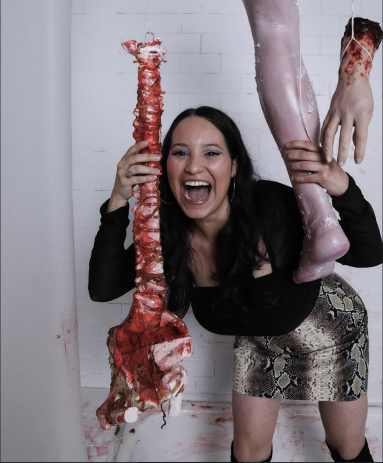The 10 Most Toxic Men in Horror Movies
Freddy Kreuger, who? The 10 toxic men on this list give the most glaring red flags in the history of horror cinema.
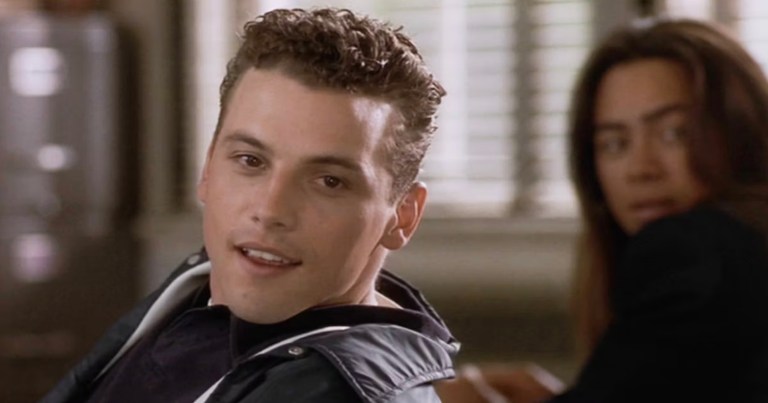
The genre has an endless supply of scary monsters—masked killers, ancient evil clowns, demons, aliens, vampires, zombies, werewolves. When you think of a horror movie villain, you’re probably thinking along the lines of one of these types of characters. In reality, horror contains a more terrifying kind of villain than the likes of Jason Voorhees or Pinhead—the everyday man who walks amongst us hiding his monstrosity beneath a normal outward appearance and faked niceties.
He’s someone who hides his sadism beneath a carefully curated facade, much like Steve in Fresh (2022) or Patrick Bateman in American Psycho (2000). This kind of jerk can be someone who slutshames women and spreads rumors about them, like Chris Hooker does to Nancy and Sarah in The Craft (1996). He’s a horrible partner who minimizes and dismisses his significant other’s very valid fears, like Francis in Watcher (2022) and Micah in Paranormal Activity (2007). He lies. He cheats. He gaslights others and distorts their reality. He tries to come off as the “nice guy” when he’s anything but. He’s selfish and apathetic. He doesn’t come close to clearing the lowest bar. He’s a toxic man—a real life monster.
Curated below are the 10 most toxic men in horror, some of which are downright abusive or homicidal, all of which are easy to hate.
Gregory Anton in Gaslight (1944)
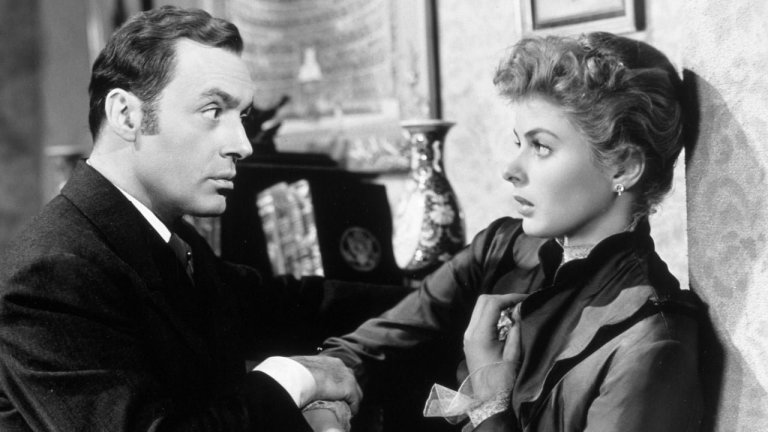
It’s not technically a horror, but this gothic thriller-mystery deserves a spot on this list for being eponymous with the term “gaslighting,” which refers to psychological manipulation aimed at distorting a person’s reality and perception. When Paula Alquist (Ingrid Bergman) meets Gregory Anton (Charles Boyer), he love bombs her, trapping her into his web, and the two get married after two short weeks of knowing each other. He plants the idea of moving back into her deceased aunt’s home in London, where Paula begins to doubt her reason and mental stability. She forgets things, hears noises coming from the attic, notices the house’s gaslights dimming, and loses objects.
Gregory makes her believe it’s all in her head, when he’s the reason behind the strange occurrences. He has isolated her from everyone in her world, going as far as forbidding outside visitors and telling her where not to go. He instructs her on how to behave. He turns others against her, convincing them his wife is high-strung. He’s a textbook narcissist. His plan was always to institutionalize her to gain full access to the estate and find her aunt’s jewels. Thankfully, Paula broke free from his grip.
Peter in Black Christmas (1974)
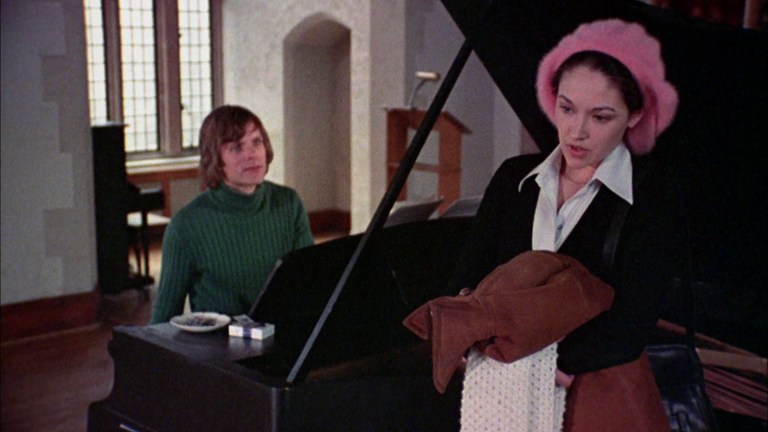
Peter (Keir Dullea), Jess’ (Olivia Huxley) boyfriend, displays aggressive and abusive behavior after she tells him she’s pregnant and intends to get an abortion. Instead of listening to her reasoning and respecting her right to choose, he verbally abuses her and tries to shame her into going through with the pregnancy. Peter tries to claim ownership over her body by demanding to have a say in a decision which solely belongs to her.
Extending his patriarchal idea of women as a possession, he tells her that they’re getting married. It’s not a proposal or a question, but a resolution he has come to that she has to accept—an order. Jess has been extremely clear about her desires and ambitions for the future, things which he fails to respect and expects her to leave behind just because his plans have changed. His treatment and language is coercive, controlling, and increasingly hostile. He displays violence in front of Jess, breaking Christmas lights and calling her a “selfish b*tch.” Manipulating her into submission didn’t work, so he switches tactics and threatens her. Peter always just wanted to have Jess under his control.
Jack Torrance in The Shining (1980)
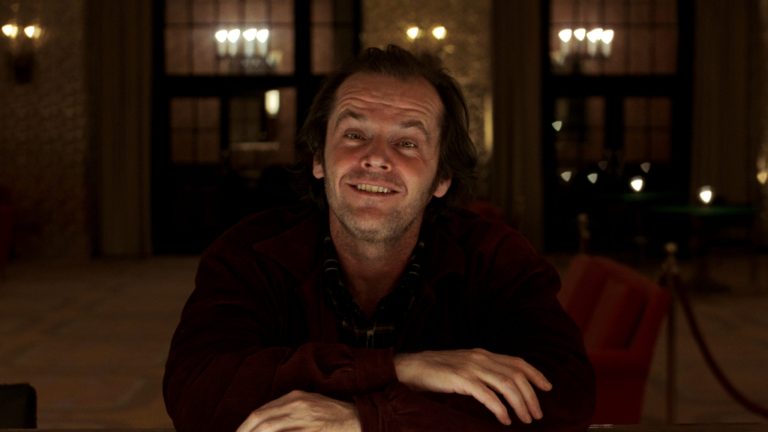
Jack (Jack Nicholson) was a terrible husband and father before the family ever arrived at the Overlook Hotel in Colorado for winter. He was a monstrous man—an abuser who had inflicted physical and psychological harm on his son and wife. The horror in The Shining isn’t supernatural, but the very real domestic terror of an abuser who breaks his promise to never again hurt you or your child. Throughout the movie, Jack becomes increasingly hostile and violent. We watch him display mercurial moods, lose his temper, have uncontrollable outbursts, instill fear in his wife and son, gaslight Wendy, and act cruel and condescending. Eventually, he tries to kill them both, chasing them with an ax.
The hotel had a hold of Jack, yes, but it was only a catalyst that led him to regress to his normal behavior—into the person he always was. If it hadn’t been the Overlook Hotel, at some point, it would’ve been something else. Like a true abuser, he “was not himself” and blamed his abusive behavior on something else, in this case his alcoholism. Later, the film tries to pin his actions on the Overlook Hotel, but it was always who Jack was. Arguably, Kubrick’s treatment of these themes, and real life abuse on set, makes The Shining a film that hasn’t aged well.
Chris Hooker in The Craft (1996)

The biggest villain in The Craft is Chris (Skeet Ulrich). The guy was a misogynist drunk on toxic masculinity. When he first meets Sarah (Robin Turney), he puts up a “nice guy” facade, but he isn’t fooling the audience. Sarah may be ignoring his bright red flags, but the audience can see right through him. He’s manipulating her, referring to Nancy as a “major slut,” and giving major sexist vibes.
When Sarah declines his invite back to his house after hanging out, he spreads lies and rumors about sleeping with her the next day. The whole school slutshames Sarah, and Chris further humiliates her in the hallway when confronted. Later on in the film, he tries to rape her. It was something always in his nature, and not to be blamed on the spell. Arguably, Nancy was protecting Sarah when she pushed him through the window, knowing from personal experience how soulless and dangerous Chris was. Honestly, good riddance!
Crispian Davison in You’re Next (2011)
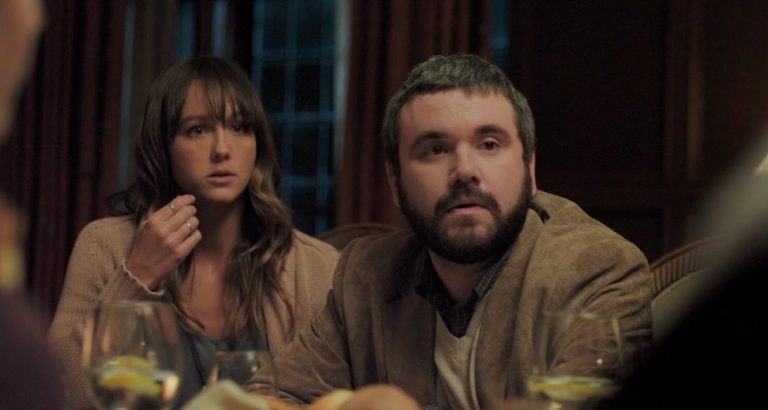
Crispian (A.J. Bowen) gives major red flags as a college professor who turned his teaching assistant into his girlfriend. At some point, he abused his power. Then, he endangers Erin’s life by bringing her along to his family’s country home where he and his brother Felix (Nicholas Tucci) have secretly plotted to have their parents and siblings murdered to inherit the family fortune.
According to him, Erin staying alive was integral to his plan—they needed a witness to corroborate their story—but nothing that comes out of Crispian’s mouth can be trusted. When he’s on the phone with who he believes to be Felix, he never once asks if Erin’s okay. After discovering it was her on the other end of the line, he doesn’t just ask where Felix is, but where Zee (Wendy Glenn) is. Zee was in on it all along, and she could have acted as the impartial observer. He never cared whether Erin lived or died, or he wouldn’t have left her there like a coward as he hid and waited it out, too afraid to participate in his own bloody plot. “The pacifist who can’t deal with the violent stuff” sure had no problem hiring three masked assailants to terrorize his family and brutally kill them. Crispian is the type of toxic man who tries to come off as soft. After everything, he has the audacity to try to manipulate and bribe Erin.
Hugh/Jeff in It Follows (2014)

What happened in It Follows was a horrific case of non-informed consent. Hugh (Jake Weary) uses Jay (Maika Monroe) to rid himself of the deadly curse. He has sex with her without disclosing that a shapeshifting entity will latch itself onto her and stalk her until it kills her or she passes it on to someone else—the equivalent of sleeping with someone and omitting that you have an STI. Afterwards, he chloroforms her and ties her up by force to reveal the truth and then drops her off at home half naked, alluding to assault.
The entire movie functions as a metaphor for being a survivor of sexual assault, with Jay embodying the impacts of that kind of unimaginable trauma—she lacks appetite, “cleanses” herself in bodies of water, critically examines her body, falls into a depression, her self-esteem deteriorates. Another big theme is other people not believing her story, even after presenting evidence of her suffering. Jay was violated by Hugh, who lied about his real name, Jeff. The deadly entity is a personification of her trauma. If one is to believe the theory that Annie (Bailey Spry), the girl who dies at the beginning of the movie, is also the girl in the picture with Hugh/Jeff, then that means he also cheated on his girlfriend with a stranger, passed on the lethal curse to her and caused her death before it went back to him. The guy only ever cared about himself.
Gerald in Gerald’s Game (2017)
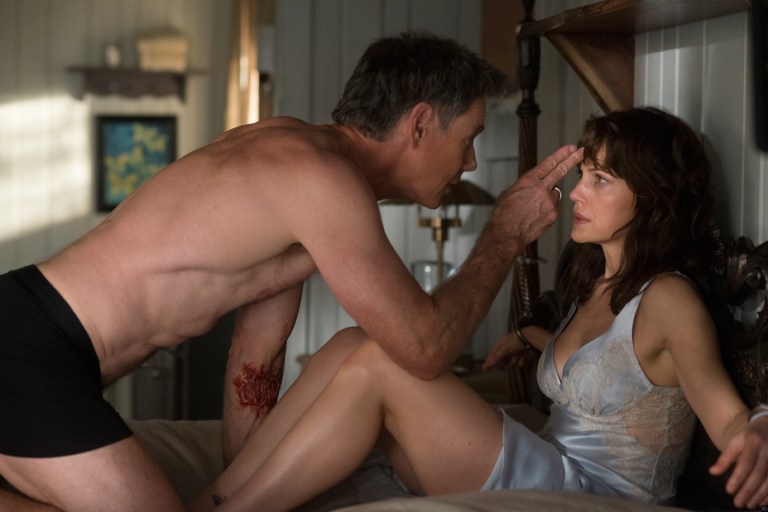
In Mike Flanagan’s film, Gerald (Bruce Greenwood) and Jessie (Carla Gugino) go on a romantic weekend getaway to an isolated lake house to try to reconnect. Rather than prioritize the emotional spark, Gerald is more interested in reviving the sexual aspect of their relationship. He’s obsessed with the idea of handcuffing his wife to the bed.
When he has her there, he starts roleplaying a rape fantasy that his wife didn’t consent to—the man is twisted. Jessie is clearly uncomfortable and asks him to stop, but he ignores her pleas and continues. After she’s triggered and demands an end to his depraved act, he proceeds to become infuriated and blame her for their failed marriage.
Jessie married a man, who just like her father, objectified her and psychologically abused her. Throughout their marriage there were red flags: he became aroused after strangling her, he made disgusting misogynistic jokes in front of her, signs pointing to him being unfaithful, he belittled her and controlled her. Gerald was a repulsive man who further inflicted pain and trauma on Jessie. Thankfully she was able to break free from his chains and that of her father’s.
Alex Le Domas in Ready or Not (2019)
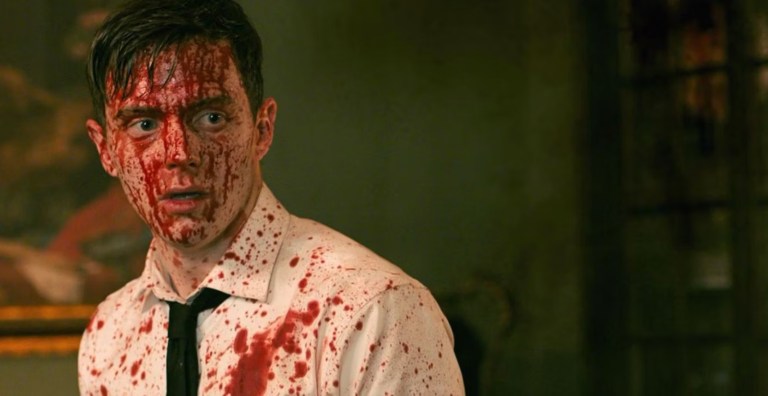
The day you say “I do” is supposed to be one of the happiest days of your life, but for Grace (Samara Weaving), it was her biggest nightmare. Just after the celebration, Grace learns of the Le Domas’ bizarre tradition of playing a game, chosen at random, the night a new member joins the family. In her case, it’s a lethal game of hide-and-seek. Her in-laws are to hunt her down and ritualistically sacrifice her to a demon they’ve sold their souls to before dawn.
Not only is Alex (Mark O’Brien) a liar by omission and someone who keeps things hidden from his partner, but his secrets put Grace’s life in danger. He knew her death was a very real possibility if he married her, but he did so anyway, instead of being honest with her about his hesitation. They could have shared a life together without the papers, but he had no integrity or courage. He’s on her side right up until the point he realizes she could never be with him after his betrayal. Rather than take the opportunity to redeem himself, he helps his family catch her. It’s he who stands over her with a knife before she manages to free herself. He was always just like his family—a rich jerk who viewed other people as dispensable. Watching him beg for forgiveness right before he explodes was thoroughly rewarding.
Christian Hughes in Midsommar (2019)
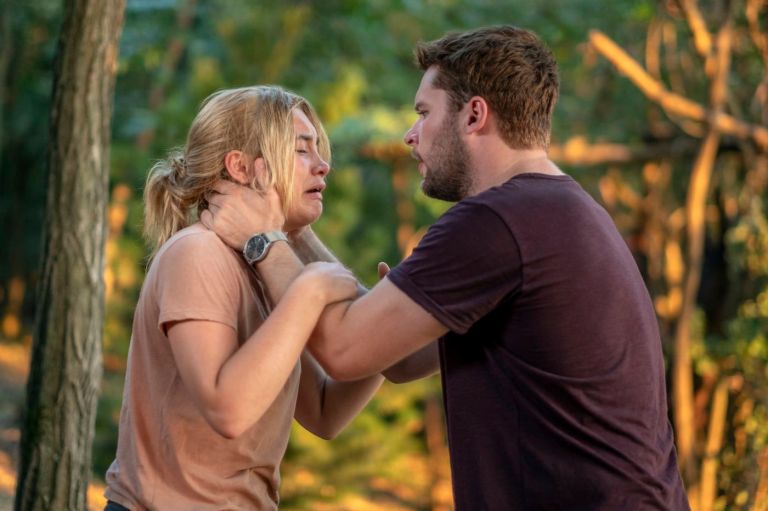
Ari Aster depicted the most iconic breakup in cinema. The writer-director also brought to life the douchiest, most uninspired, inconsiderate, narcissistic, emotionally abusive, toxic man on screen. Christian’s (Jack Reynor) character hit way too close to home for many viewers who intimately know the pain of that head-spinning type of relationship. His character made numerous others leave theaters with unsettling realizations about their significant other.
Christian is an emotionally uninvested boyfriend to Dani (Florence Pugh). He has been stringing her along for over a year and continues to throughout her mourning. It’s not merciful, he’s just causing her more pain and convincing himself he’s a nice guy. He’s so selfish that all he can think about after the death of her family is that he should have broken up with her sooner. Christian fails to be the emotional support she needs through her grief, treating her more like an obligation. Dani can’t bring up her feelings about their relationship without him becoming annoyed. He regularly gaslights her and minimizes her emotions.
The director’s cut includes a scene where he lies to her about having had a romantic invite planned for Sweden that she’d ruined. In another deleted scene, he accuses her of trying to exploit the fact that he forgot her birthday. He’s not just a romantic cheater, but he cheats his way through life, having stolen Josh’s (William Jackson Harper) thesis. Christian was the biggest fraud, and honestly, one couldn’t help but smile with Dani as he burned alive inside the disemboweled bear.
Adrian Griffin in The Invisible Man (2020)
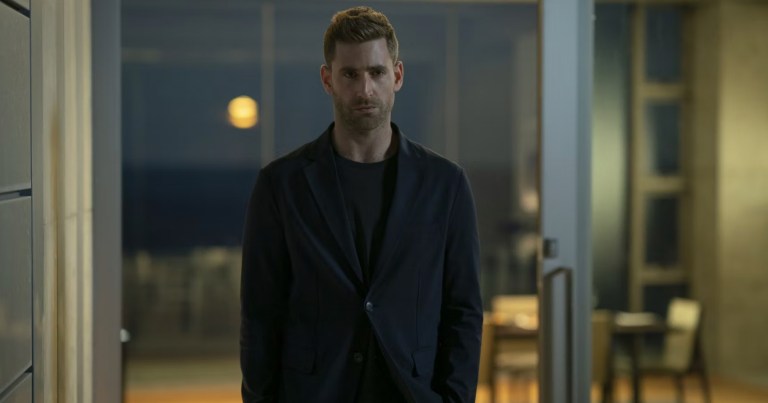
It doesn’t get more toxic than an abuser. Adrian (Oliver Jackson-Cohen) is the most terrifying villain in horror, more than any masked killer, monster, or supernatural entity. No amount of jump scares, science fiction, or gore can frighten as much as this vile man. He may not be hellbent on world domination like the original Universal monster, but watching him terrorize Cecilia (Elisabeth Moss) makes him more despicable.
The horror in this film is rooted in its realistic portrayal of intimate partner violence and the lasting impacts that trauma can have on a person. In the beginning of the film, the audience immediately understands that Cecilia is a woman who has endured unspeakable abuse, as we watch her enact her meticulous plan to escape. Later, she shares with James (Aldis Hodge) how Adrian controlled every detail of her life—from what she wore to what she ate to when she left the house, and eventually her own thoughts. He was physically violent, he isolated her, and psychologically abused her. Then, he fakes his death to continue gaslighting her and controlling her life. Watching his throat get slit is one of the most satisfying moments in the history of horror.
Further reading:
